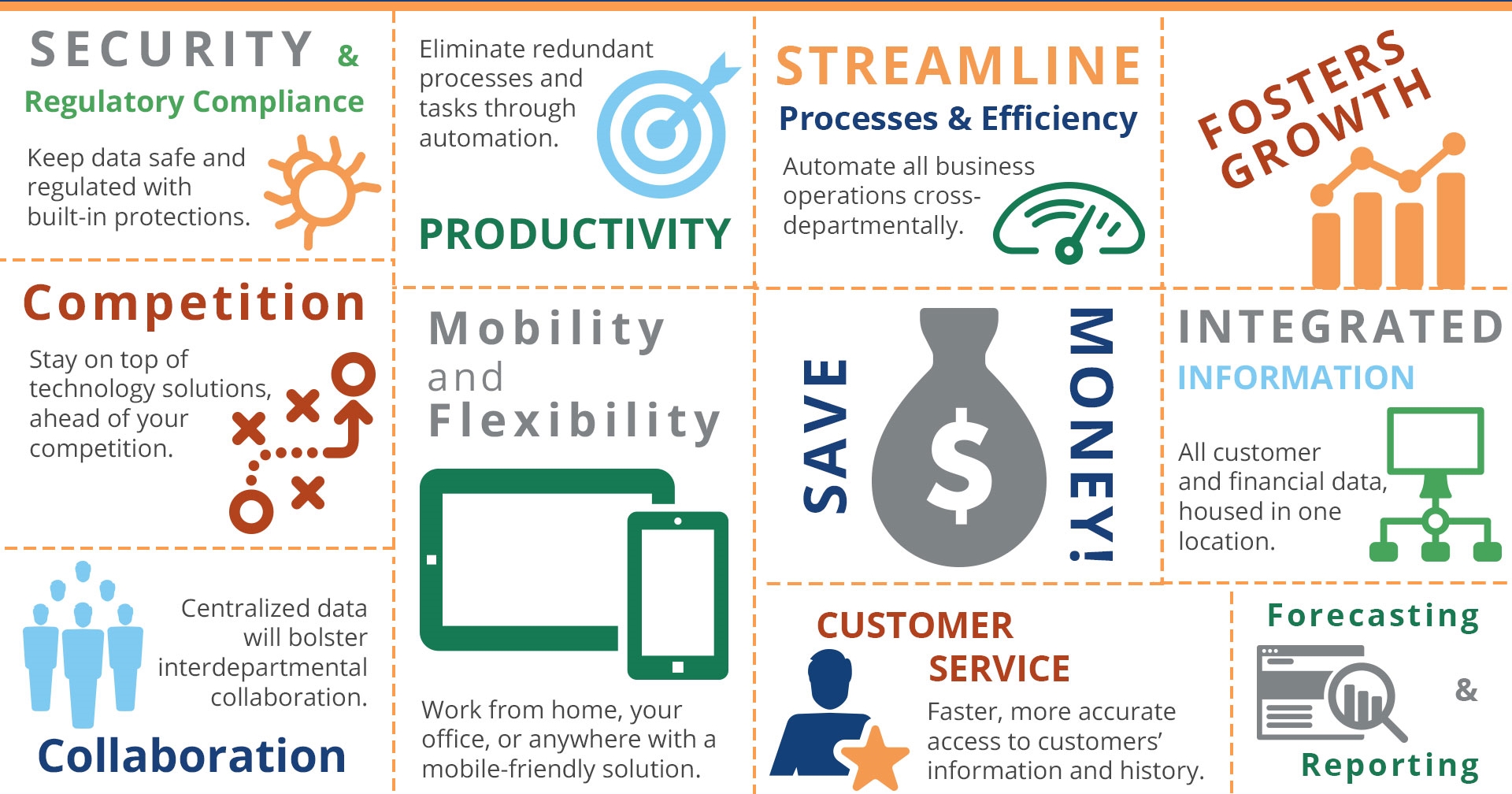Below, we take a look at some benefits, goals of ERP.

Cost reduction
- Efficient processes reduce waste and increase productivity, which lead to reduced production/execution costs.
- ERP systems improve sales forecasting, which leads to improved inventory management throughout the supply chain. For example, if a parts supplier knows when each one of his customers will need new supplies, he can plan his production shifts to manufacture just enough to fill demand, and he will not have to carry excess inventory or not have enough parts on hand to fill customer demand
Create better decision support system, engendering increased ROI
- With ERP, functional departments are integrated, with the data shared in a central place, and this makes the decision-making process easier for management. With relevant information easily accessible, decision makers can make better decisions for more efficient output, and consequently higher ROI
Ensure availability of relevant data information at request without compromising security and regulatory requirements
- Non-availability of relevant business information when required causes organisations not to work to optimum capacity. With company information on one platform and relevant reporting setup, it will be easier to access information when required. This information can be shared, possibly to a department who needs it to complete another task, thus saving time that might have been wasted looking for the piece of information, halting processing of another task. With user rights and permissions setup, will be able to ensure that information security is maintained. Only those who should have access to certain information would have access.
Ensure scalability of business operations
- At some level, it is possible to manage a business without systems and with data in disparate locations. As the business grows however, it gets harder to manage this way, and even harder to scale. With information managed by a system, it is easier to expand operations – all data still intact, reports generated, and the business can grow
Better intra company communication
- This is important because usually, without a centralized system, departments are usually working individually, there is no easy information flow, this results in more time than required being taken to complete a task
Eliminate paper and forms where feasible and sensible
- Compliance with the green world theme
- Easier to find required documents
- Easier to back up information
Security
- Restrictions (roles, permissions) to data possible
Stay on Top of Regulations
- Most ERP systems are equipped to ease regulatory compliance when it comes to a variety of business processes, such as financial accounting, data security and product traceability.
Publicly traded companies need to ensure all their financial records are 100-percent accurate. ERP software helps keep everything in line through Generally Accepted Accounting Principles (GAAP).

Recent Comments